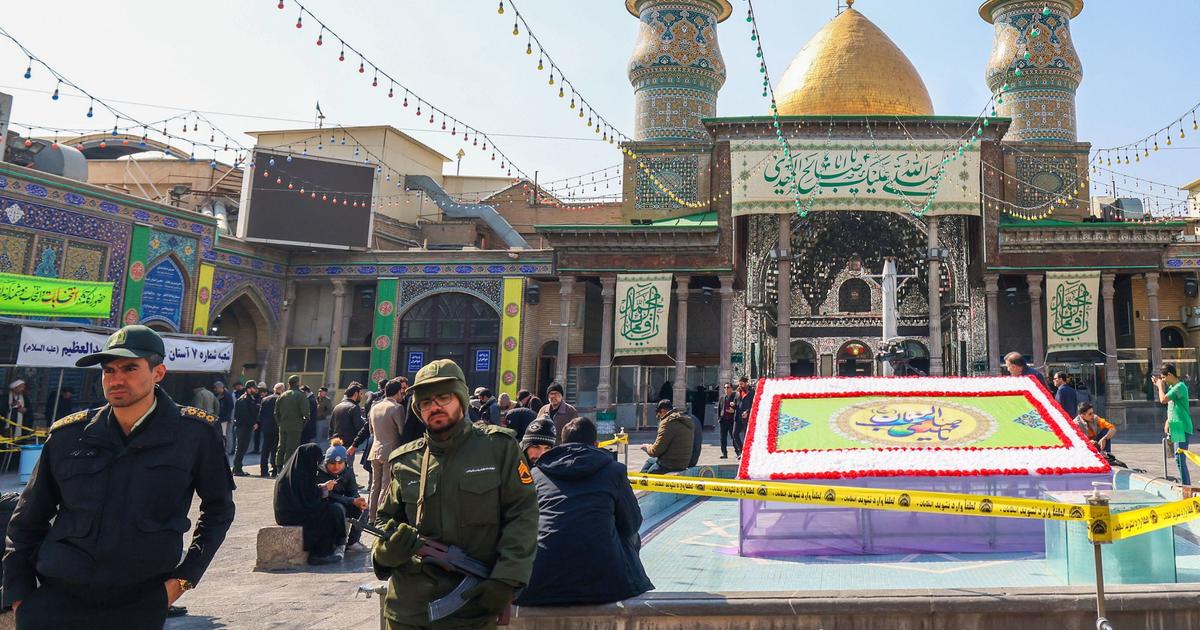See what is happening in Iran in rejection of the death of Mahsa Amini 3:38
(CNN)
-- Iranian authorities have announced they will restrict Internet access until calm is restored to the streets, as protests over the death of a young woman in moral police custody rock the Islamic republic.
Thousands of Iranians have taken to the streets since last week to protest the death of 22-year-old Mahsa Amini, who was detained in Tehran and taken to a "re-education center", apparently for not wearing her hijab properly.
Since Friday, demonstrations have been held in at least 40 cities across the country, including the capital Tehran.
The protesters demand an end to violence and discrimination against women, as well as an end to the mandatory use of the hijab.
Dozens of protesters have reportedly been killed in clashes with security forces.
CNN was unable to independently verify the death toll (a precise figure is impossible for anyone outside the Iranian government to confirm), while opposition groups, international human rights organizations and local journalists have given differing estimates.
Amnesty International reported on Friday that at least 30 people were killed, including four minors.
The Islamic Republic of Iran's state broadcasting media, meanwhile, claimed that 35 people were killed.
advertising
decades of repression
Authorities hope the internet restrictions will help contain the protests, which are the latest in a wave that has swept across Iran in recent years.
They started with the Green movement in 2009 due to the questioning of the electoral results and, more recently, they continued with the 2019 protests caused by an increase in fuel prices.
Hundreds of people are believed to have been killed in the violent crackdown three years ago and thousands more injured, according to estimates released by the UN and human rights groups.
But this year's protests are different: unprecedented in scope, scale and feminist nature.
Mobilization also cuts across different socioeconomic layers.
A young generation of Iranians is rising up in the streets against decades of repression, possibly bolder than ever.
Demonstrations have spread to dozens of Iranian cities, from the northwestern Kurdish region to Tehran, and even to traditionally more conservative cities like Mashhad.
While sparked by Amini's death, the initial calls for accountability have turned into demands for more rights and greater freedoms, especially for women, who since the 1979 Islamic Revolution have faced discrimination and severe restrictions on their rights. Rights.
Calls for regime change are also growing.
Protesters across the country chant for "death to the dictator," referring to the supreme leader, as they tear down portraits of Ayatollah Ali Khamenei.
Images circulated on Friday night taken in Khamenei's birthplace, the city of Mashhad, where protesters set fire to the statue of a man considered one of the symbols of the Islamic Revolution.
This is a scene that was unthinkable in the past.
Dozens of people stage a rally to protest the death of Mahsa Amini in Tehran, Iran, on September 21.
It all comes at a time when Iran's hardline leadership is under increasing pressure, between talks to revive the stalled 2015 nuclear deal and the state of the economy under US sanctions.
Meanwhile, ordinary Iranians are struggling with rising levels of inflation.
While these protests are the biggest challenge to the government in years, analysts believe they are likely to be contained by heavy-handed strategies used in the past.
There are signs that a brutal crackdown is coming, along with internet restrictions on a level not seen since 2019. The government could also mobilize its supporters in mass rallies after Friday prayers;
while its officials accuse the protesters of rioters and foreign agents, and issue harsh warnings about the deployment of the army and the powerful Iranian Revolutionary Guard Corps.
Speaking to state broadcaster IRIB on Friday, Iran's Communications Minister Ahmad Vahidi said: "Until the riots are over, the internet will have limitations. To prevent the organization of riots through social media, we are forced to limit the Internet".
Vahidi's comments came after videos on social media showed scenes of public defiance of authority, with women removing and burning their veils and protesters chanting slogans such as "women, life, freedom."
The move to further restrict the Internet was announced following a United Nations call for an independent investigation into Amini's death and for Iran's security forces to refrain from using "disproportionate force" against protesters.
Outrage over Amini's death is linked to public mistrust of the account by state officials, who say she died after suffering a "heart attack" that sent her into a coma.
But Amini's family has said she did not have a pre-existing heart condition.
Amini's death became a symbol of the violent oppression women have faced in Iran for decades, and her name has spread across the world.
World leaders even named her at the United Nations General Assembly in New York City this week.
The United Nations High Commissioner for Human Rights said Thursday that UN experts strongly condemned the use of physical violence against women in Iran by state authorities.
"Iranian authorities said that (Amini) died of a heart attack and claimed that his death was from natural causes. However, some reports suggested that Amini's death was the result of alleged torture and ill-treatment," a statement said. .
"We call on the Iranian authorities to conduct an independent, impartial and prompt investigation into Amini's death, make the results of the investigation public and hold all perpetrators accountable," it added.
'I'm terrified': Women open up about Iran's hijab law after Mahsa Amini's death
hit against the internet
Internet monitoring agency Netblocks reported on Friday that Iranians are facing a third wave of loss of mobile Internet connectivity on a "national scale" amid the protests.
The same source said earlier in the week that Iran was suffering from the most severe internet restrictions since 2019, with mobile networks mostly closed and social networks Instagram and WhatsApp restricted.
To bypass internet blockades, Iranians both within the country and in the diaspora are turning to popular virtual private network (VPN) providers like Tor Project and Hula VPN, the most downloaded apps available in Iran through Google Play. Store, according to monitoring service AppBrain.
However, Netblocks warned that the kind of internet disruption currently in the country "is generally not fixable by the use of circumvention software or VPNs."
In November 2019 there were similar internet restrictions in Iran that shut Iranians down almost completely, due to an attempt by the authorities to curb the spread of the then fuel price protests.
The UN calls for an investigation
UN Secretary-General António Guterres said on Friday he was "concerned by reports of peaceful protests that were met with excessive use of force causing dozens of deaths and injuries."
"We call on the security forces to refrain from using unnecessary or disproportionate force and we call on everyone to exercise restraint to prevent further escalation," spokesman Stéphane Dujarric told the daily briefing on UNTV.
The UN reported that it is closely following the protests and asked the authorities to "respect the right to freedom of expression, peaceful assembly and association."
"We also call on the authorities to respect the rights of women and eliminate all forms of discrimination against them and girls, and implement effective measures to protect them from human rights violations, in accordance with international standards."
Guterres reiterated a call by the Acting High Commissioner for Human Rights for a prompt investigation into Amini's death by an "independent competent authority."
HijabiranisWomenProtests in Iran

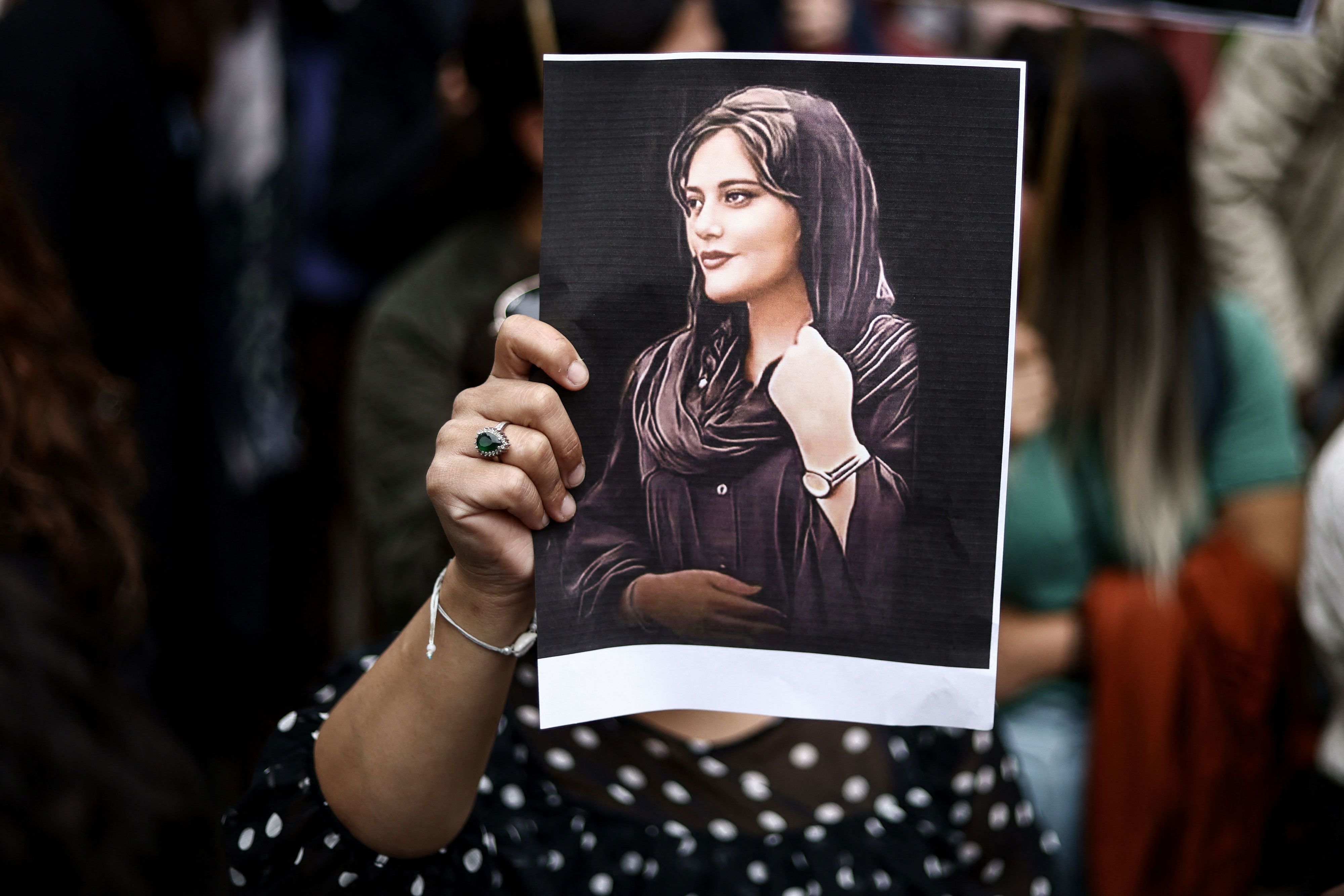
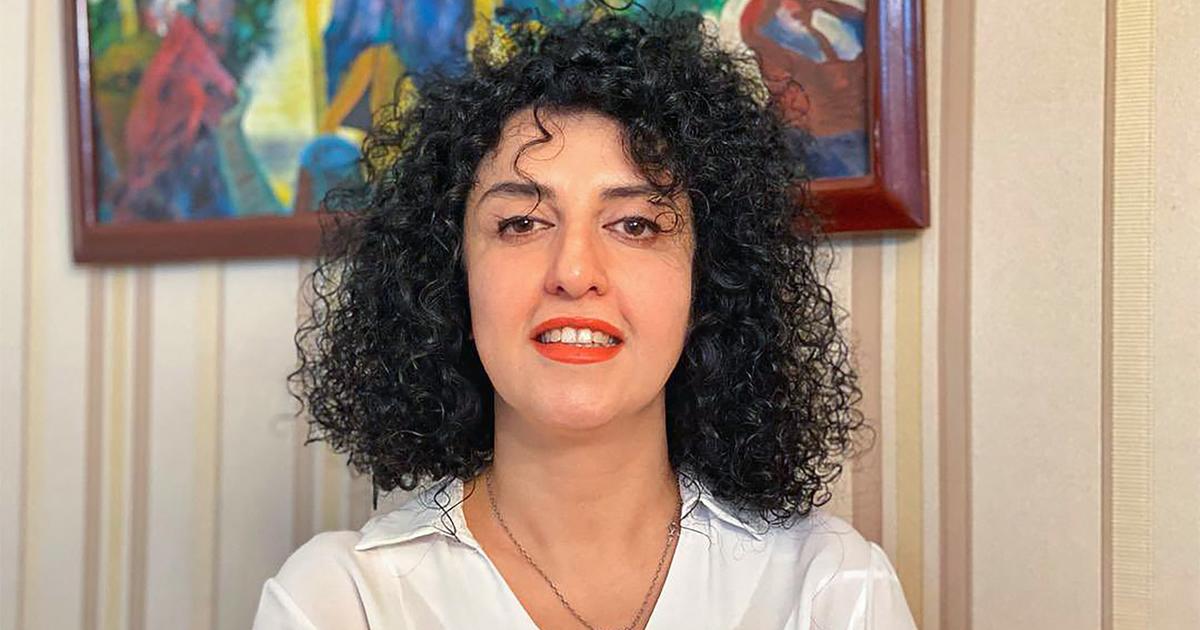
/cloudfront-eu-central-1.images.arcpublishing.com/prisa/RSDYMJQAS5HZZJNOQTAQ3E4FYI.jpg)
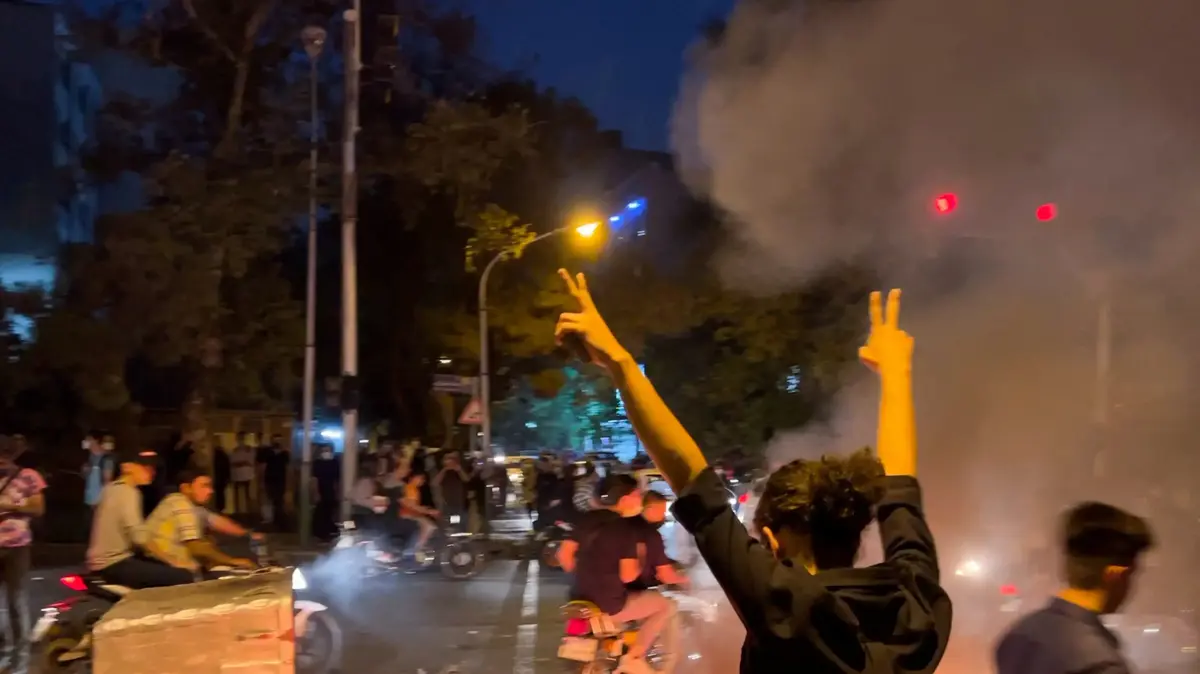

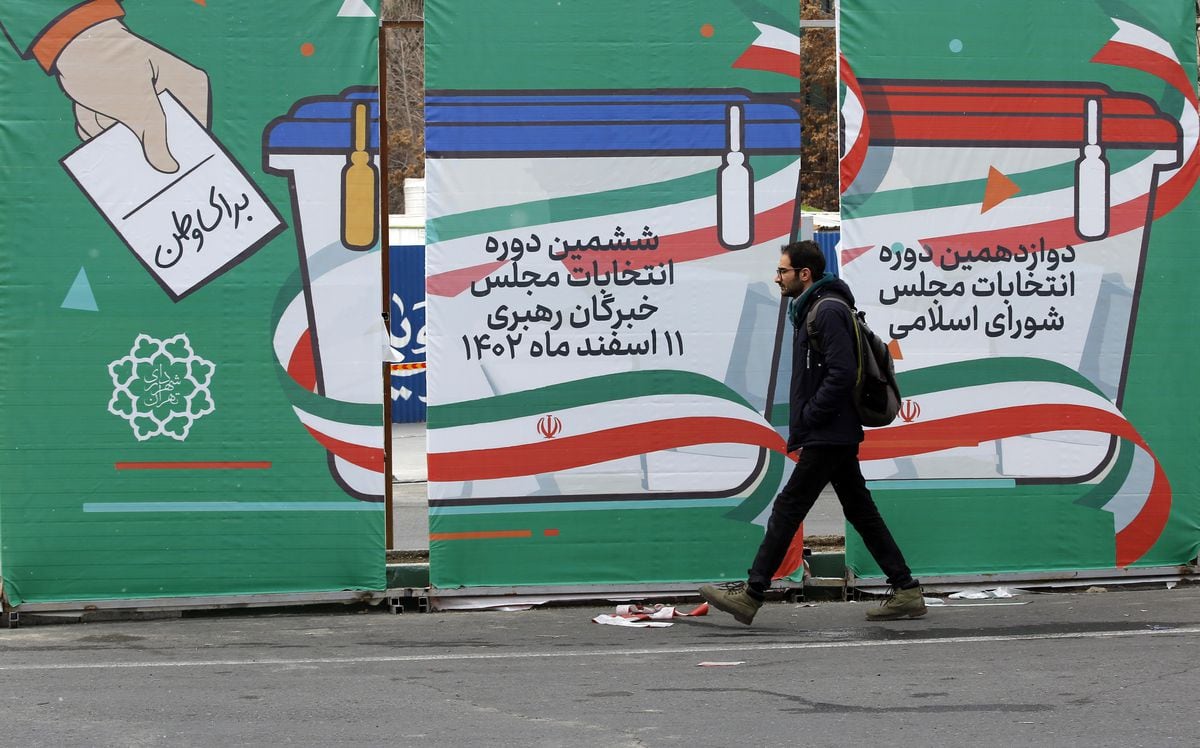
/cloudfront-eu-central-1.images.arcpublishing.com/prisa/AD2TMVZ5XQUDUGJNBTOYF4FIIA.jpg)
